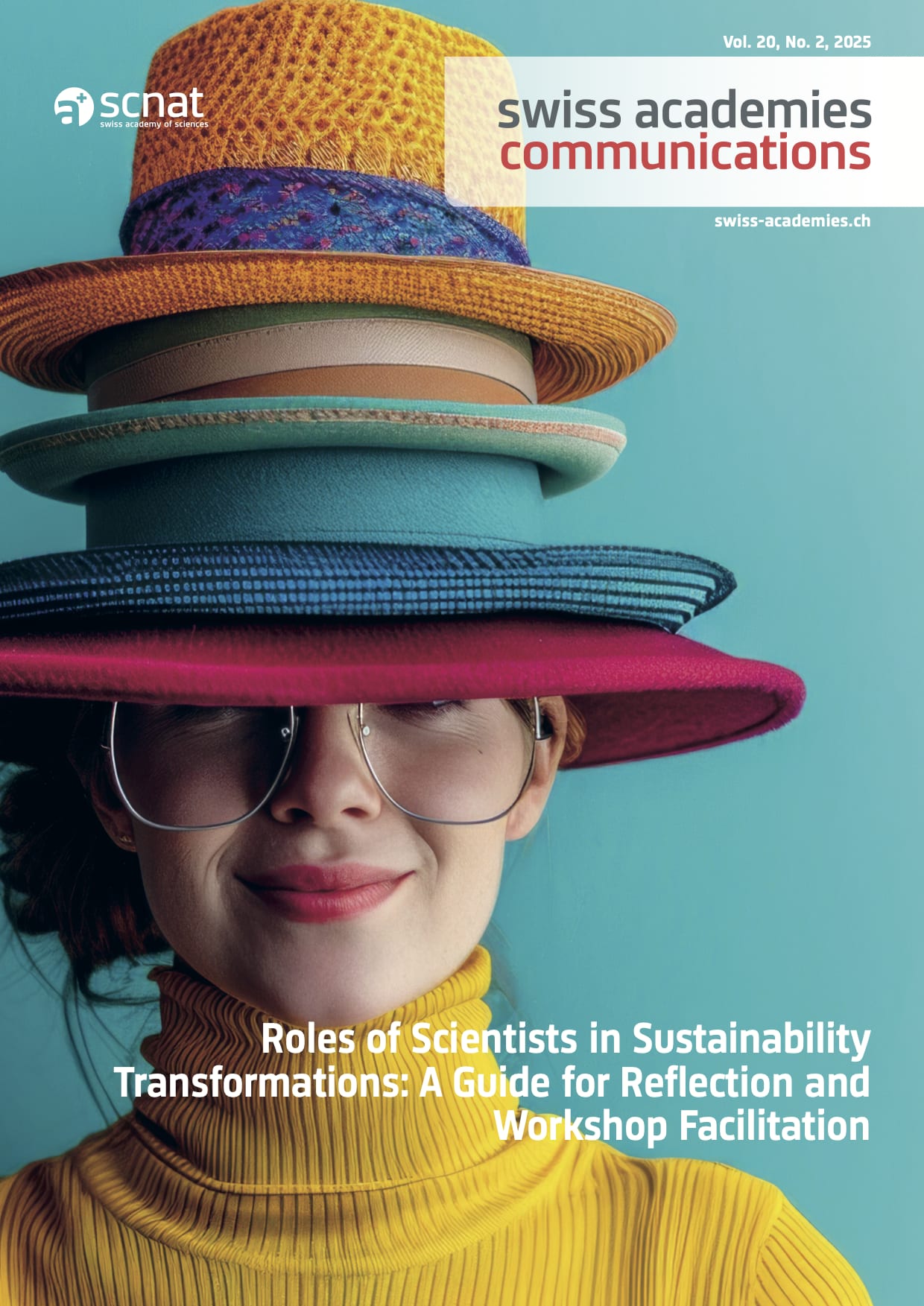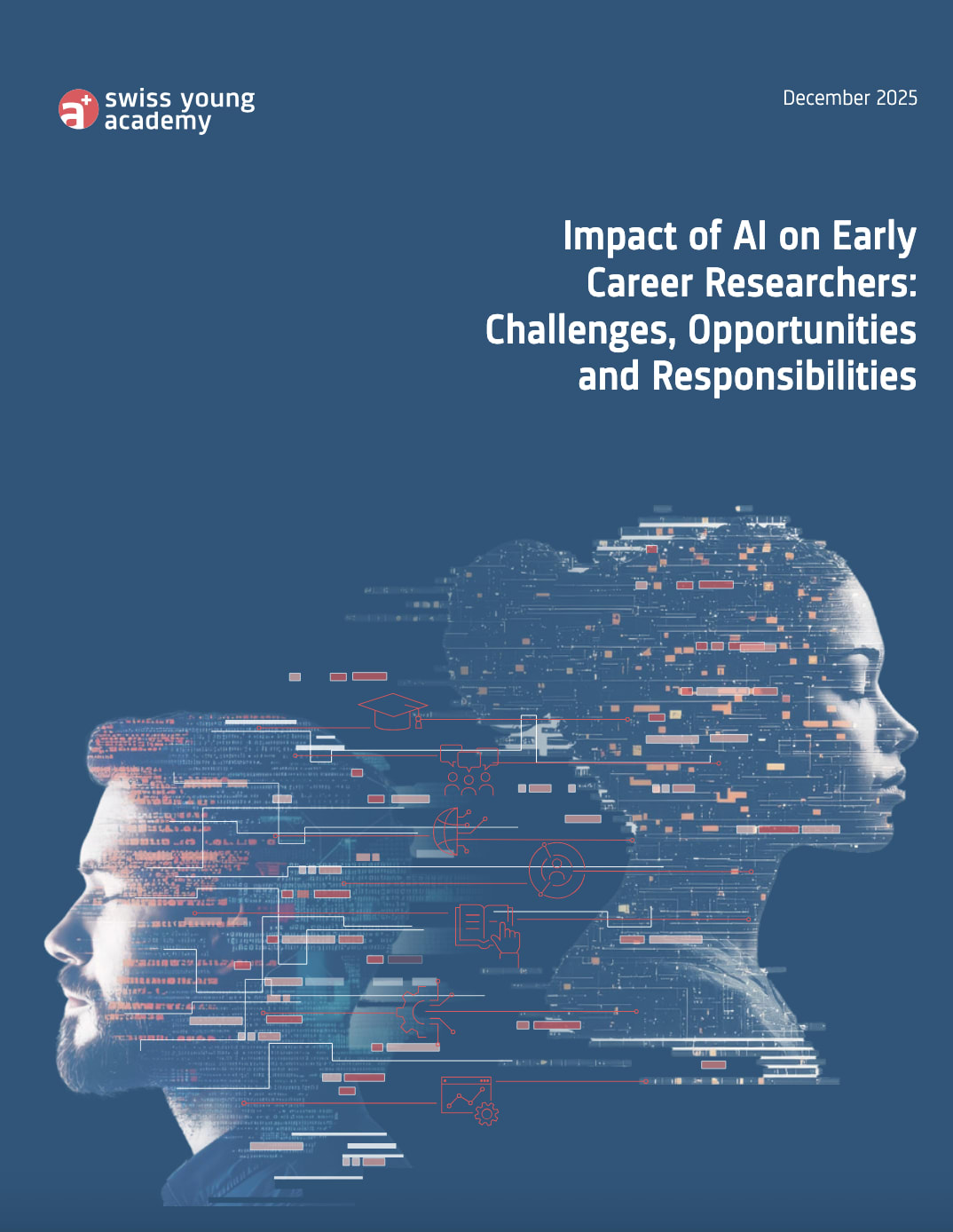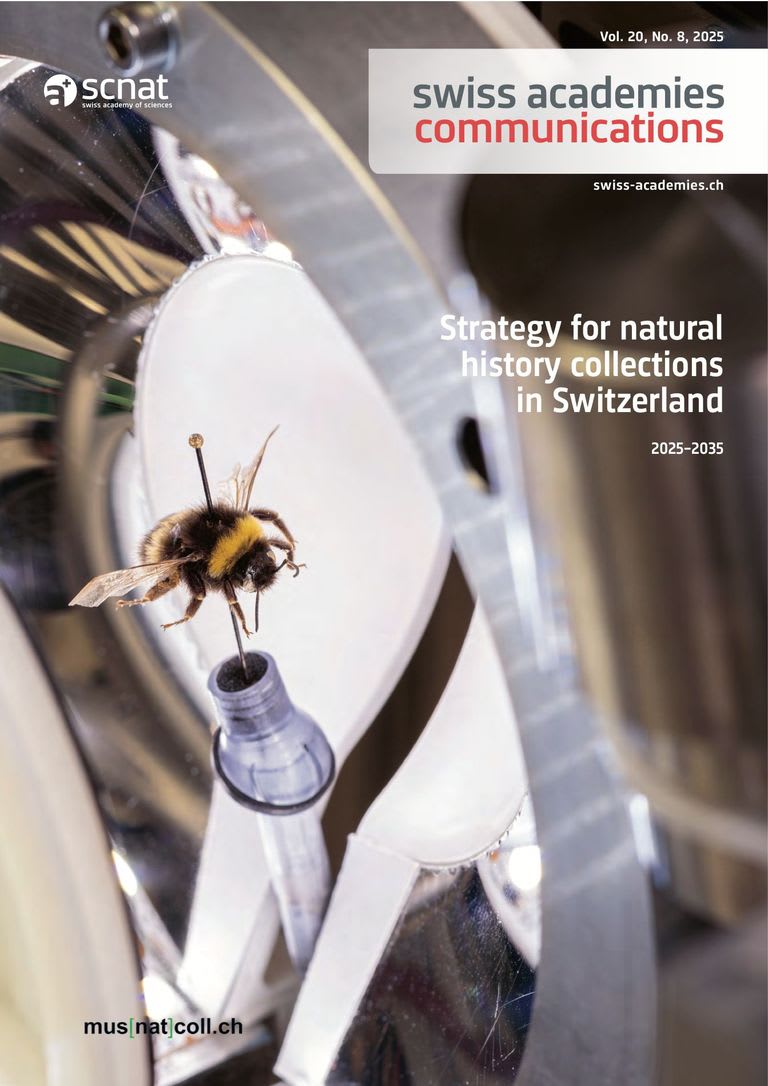Swiss Academy of Sciences SCNAT
Roles of Scientists in Sustainability Transformations: A Guide for Reflection and Workshop Facilitation
Scientists, scientific experts, and knowledge brokers often find themselves in situations where they need to play new roles in society or are criticised for positioning themselves at the interface between science and other societal fields of action. The present guide aims to stimulate reflections on, and discussions of, various different roles that scientists perform.

The guide is based on insights from the literature that underline how role variety and role clarity enhance the quality of science and its support for society – in the context both of sustainability-oriented science and of science that does not have this normative orientation. It invites readers to explore the different roles that scientists can be expected to or may intuitively intend to perform – and to value the strength and purpose of each of these different roles.
Studer S, Marfurt F, Zimmermann AB, Behringer J (2025): Roles of Scientists in Sustainability Transformations: A Guide for Reflection and Workshop Facilitation. Swiss Academies Communications 20 (2)



